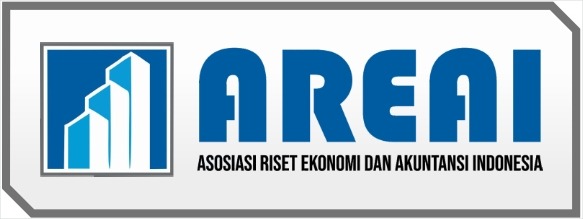Citizen Participation and Digital Governance in Public Sector Accountability
DOI:
https://doi.org/10.61194/ijat.v2i4.715Keywords:
Social Accountability, Public Sector Accounting, Transparency, Participatory Governance, Fiscal Reform, Digital Public Reporting, Institutional TrustAbstract
This narrative review explores the dynamics of social accountability within public sector accounting by synthesizing empirical studies and theoretical frameworks across multiple countries. The objective is to identify key drivers and systemic barriers that influence the effectiveness of social accountability mechanisms. Drawing on literature from databases such as Scopus, Google Scholar, and PubMed, the study employs a thematic analysis to examine the roles of public participation, digital governance, cultural norms, fiscal transparency, and regulatory frameworks. Results indicate that public engagement, when supported by digital platforms and inclusive policies, significantly enhances transparency and institutional trust. However, challenges persist, especially in developing countries, where bureaucratic rigidity, limited resources, and misalignment between global standards and local values hinder reform efforts. The discussion underscores the necessity for integrated governance models that emphasize participatory and transparent processes tailored to sociocultural contexts. Key systemic factors such as independent oversight institutions, technological capacity, and ethical leadership emerge as crucial enablers. The findings suggest that strengthening internal institutional capacity, realigning regulatory reforms with societal expectations, and leveraging technology are essential for advancing social accountability. This review calls for further empirical studies to develop adaptive, context-sensitive frameworks that embed social values in public financial reporting. Ultimately, a people-centered, interdisciplinary approach is imperative for transforming public sector governance into a more accountable and transparent system.
References
Agostino, D., Saliterer, I., & Steccolini, I. (2021). Digitalization, accounting and accountability: a literature review and reflections on future research in public services. Financial Accountability and Management, 38(2), 152-176. https://doi.org/10.1111/faam.12301 DOI: https://doi.org/10.1111/faam.12301
Alawattage, C. and Azure, J. (2021). Behind the world bank’s ringing declarations of “social accountability”: ghana’s public financial management reform. Critical Perspectives on Accounting, 78, 102075. https://doi.org/10.1016/j.cpa.2019.02.002 DOI: https://doi.org/10.1016/j.cpa.2019.02.002
Ang, S. and Wickramasinghe, D. (2024). Cultivating public value and accountability beyond npm: a non‐western perspective. Financial Accountability and Management. https://doi.org/10.1111/faam.12426 DOI: https://doi.org/10.1111/faam.12426
Aswar, K., Ermawati, E., & Julianto, W. (2021). Implementation of accrual accounting by the indonesian central government: an investigation of social factors. Public and Municipal Finance, 10(1), 151-163. https://doi.org/10.21511/pmf.10(1).2021.12 DOI: https://doi.org/10.21511/pmf.10(1).2021.12
Chawla, A. (2020). Social audit, accountability and accounting – an indian perspective. Journal of Accounting in Emerging Economies, 11(1), 10-26. https://doi.org/10.1108/jaee-02-2019-0034 DOI: https://doi.org/10.1108/JAEE-02-2019-0034
Cohen, S., Bisogno, M., & Malkogianni, I. (2019). Earnings management in local governments: the role of political factors. Journal of Applied Accounting Research, 20(3), 331-348. https://doi.org/10.1108/jaar-10-2018-0162 DOI: https://doi.org/10.1108/JAAR-10-2018-0162
Gourfinkel, D. (2021). The main challenges of public sector accounting reforms and world bank's public sector accounting and reporting (pulsar) program. Journal of Public Budgeting Accounting & Financial Management, 34(2), 347-352. https://doi.org/10.1108/jpbafm-05-2021-0079 DOI: https://doi.org/10.1108/JPBAFM-05-2021-0079
Harun, H., Van-Peursem, K., & Eggleton, I. (2015). Indonesian public sector accounting reforms: dialogic aspirations a step too far?. Accounting Auditing & Accountability Journal, 28(5), 706-738. https://doi.org/10.1108/aaaj-12-2012-1182 DOI: https://doi.org/10.1108/AAAJ-12-2012-1182
Humphrey, C. and Miller, P. (2012). Rethinking impact and redefining responsibility. Accounting Auditing & Accountability Journal, 25(2), 295-327. https://doi.org/10.1108/09513571211198773 DOI: https://doi.org/10.1108/09513571211198773
Irvine, H. and Moerman, L. (2017). Gambling with the public sphere: accounting’s contribution to debate on social issues. Critical Perspectives on Accounting, 48, 35-52. https://doi.org/10.1016/j.cpa.2017.05.002 DOI: https://doi.org/10.1016/j.cpa.2017.05.002
Kamaruddin, M. and Auzair, S. (2022). The impact of financial management practices on accountability of islamic social enterprise (ise). International Journal of Islamic and Middle Eastern Finance and Management, 16(4), 669-686. https://doi.org/10.1108/imefm-05-2021-0184 DOI: https://doi.org/10.1108/IMEFM-05-2021-0184
Landi, S., Costantini, A., Fasan, M., & Bonazzi, M. (2021). Public engagement and dialogic accounting through social media during covid-19 crisis: a missed opportunity?. Accounting Auditing & Accountability Journal, 35(1), 35-47. https://doi.org/10.1108/aaaj-08-2020-4884 DOI: https://doi.org/10.1108/AAAJ-08-2020-4884
Liberato, M., Paiva, I., & Serrasqueiro, R. (2023). Constraints and stimuli in the implementation of public accounting reform: systematic literature review and future research agenda. Journal of Accounting & Organizational Change, 20(3), 560-592. https://doi.org/10.1108/jaoc-01-2022-0018 DOI: https://doi.org/10.1108/JAOC-01-2022-0018
Pärl, Ü., Paemurru, E., Paemurru, K., & Kivisoo, H. (2020). Dialogical turn of accounting and accountability integrated reporting in non-profit and public-sector organisations. Journal of Public Budgeting Accounting & Financial Management, 34(1), 27-51. https://doi.org/10.1108/jpbafm-11-2019-0178 DOI: https://doi.org/10.1108/JPBAFM-11-2019-0178
Saraite-Sariene, L., Alonso-Cañadas, J., Galán-Valdivieso, F., & Pérez, M. (2019). Non-financial information versus financial as a key to the stakeholder engagement: a higher education perspective. Sustainability, 12(1), 331. https://doi.org/10.3390/su12010331 DOI: https://doi.org/10.3390/su12010331
Slama, F. and Jandoubi, M. (2024). Ipsas adoption, public governance and corruption perception in mena and sub-saharan africa countries. Journal of Financial Reporting and Accounting. https://doi.org/10.1108/jfra-12-2023-0773 DOI: https://doi.org/10.1108/JFRA-12-2023-0773
Twyford, E. (2022). Crisis accountability and aged “care” during covid-19. Meditari Accountancy Research, 31(1), 27-51. https://doi.org/10.1108/medar-05-2021-1296 DOI: https://doi.org/10.1108/MEDAR-05-2021-1296
Twyford, E. and Abbas, R. (2022). Broadening the boundaries of accounting: a call for interdisciplinarity in the calculative era. Meditari Accountancy Research, 31(1), 187-211. https://doi.org/10.1108/medar-06-2021-1338 DOI: https://doi.org/10.1108/MEDAR-06-2021-1338
Vollmer, H., Helden, J., & Steccolini, I. (2024). New development: keeping up with accounting in society—public sector challenges. Public Money & Management, 44(8), 733-736. https://doi.org/10.1080/09540962.2024.2364451 DOI: https://doi.org/10.1080/09540962.2024.2364451
Adhariani, D. (2024). Surplus Indonesia: Tackling food waste through app. Emerald Emerging Markets Case Studies, 14(4), 1-25. https://doi.org/10.1108/eemcs-04-2024-0190 DOI: https://doi.org/10.1108/EEMCS-04-2024-0190
Downloads
Published
How to Cite
Issue
Section
License
Copyright (c) 2024 Rika Febby Rhamadhani, Friday Ogbu Edeh

This work is licensed under a Creative Commons Attribution 4.0 International License.






